Jihadist massacre heaps pressure on Burkina junta
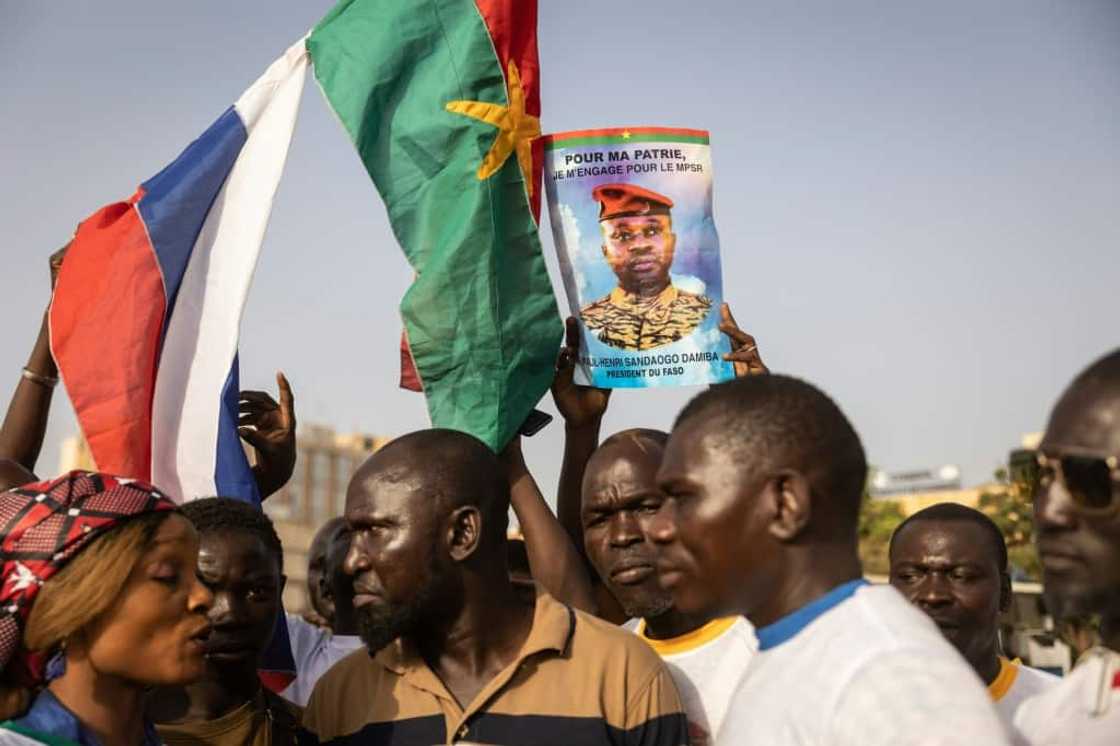
Source: AFP
PAY ATTENTION: Follow Briefly News on Twitter and never miss the hottest topics! Find us at @brieflyza!
In January, a military junta seized power in Burkina Faso, pledging to restore security in a country ravaged by a nearly seven-year-old jihadist insurgency.
But five months later, the body count is rising remorselessly, heaping pressure in turn on strongman Paul-Henri Sandaogo Damiba's regime.
In the latest shock to the impoverished nation, 86 people died last Saturday when jihadists attacked the northern border village of Seytenga.
Throughout the night, said survivors, the assailants moved unhampered from home to home, slaughtering inhabitants and torching shops.
It was the second worst death toll in the history of the jihadist campaign, which began in 2015 with cross-border raids from Mali.
Thousands have since died and nearly two million people have fled their homes.
PAY ATTENTION: Follow us on Instagram - get the most important news directly in your favourite app!
Operations led by Al-Qaeda and affiliates of the Islamic State group have turned Burkina into an epicentre of violence in the Sahel.
According to the Armed Conflict Location & Event Data Project (ACLED), the country suffered more deadly attacks last year than even Mali or Niger.
Pullout row
The latest bloodletting has become a challenge for the junta as critics and commentators put its anti-jihadist strategy under the microscope.
Villagers who escaped the massacre said they had been left defenceless after troops and gendarmes pulled out of the area after coming under an attack a day before, losing 11 men.
Alassane Bala Sakande, who heads the People's Movement for Progress (MMP), the party of president Roch Marc Christian Kabores who was overthrown on January 24, lashed the pullout.
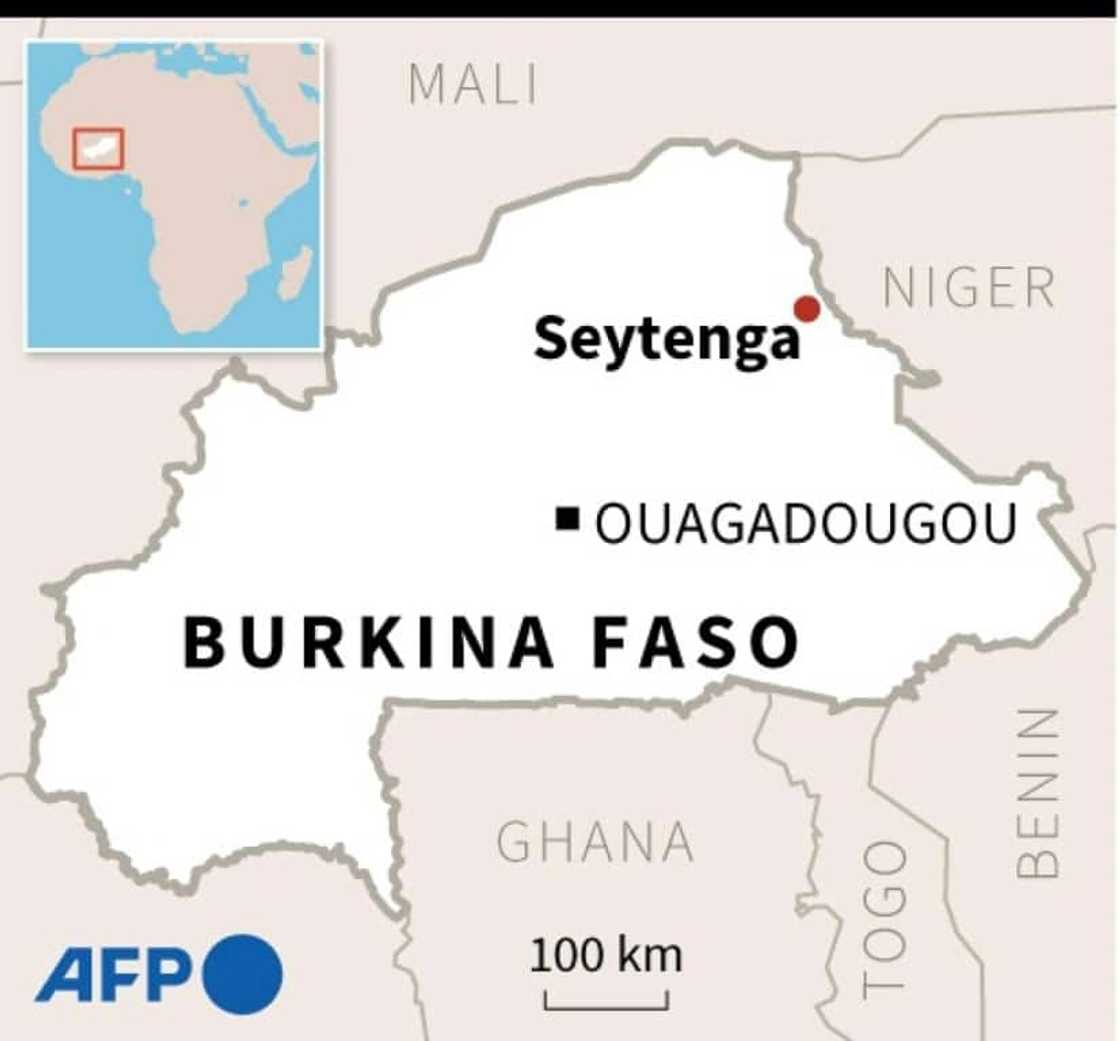
Source: AFP
"How is it possible that in a key and strategic area terrorists can simply carry out barbaric acts over a period of hours without being disturbed?" he asked.
Moussa Zerbo, spokesman for the Union for Progress and Change (UPC) party, called for answers about what led the security forces "to totally leave Seytenga, a place under assault from terrorists."
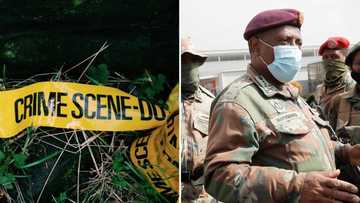
Read also
Suspect killed during shoot out with SANDF members, 4 stolen cars recovered near Mozambique border
Kabore was ousted on January 24 after becoming increasing unpopular over the failure to quell the jihadist raids.
A brief lull in attacks followed the coup, but several hundred people have died in the past three months.
Frustration
"The military came to power by generating a wave of enthusiasm among the public. It's only logical for the (jihadist) forces to try to break this momentum," said legal expert and political analyst Paz Hien.
Another commentator, Drissa Traore, said the public felt frustrated.
"We are told that there's a buildup of (army) forces but we don't see results," said Traore.
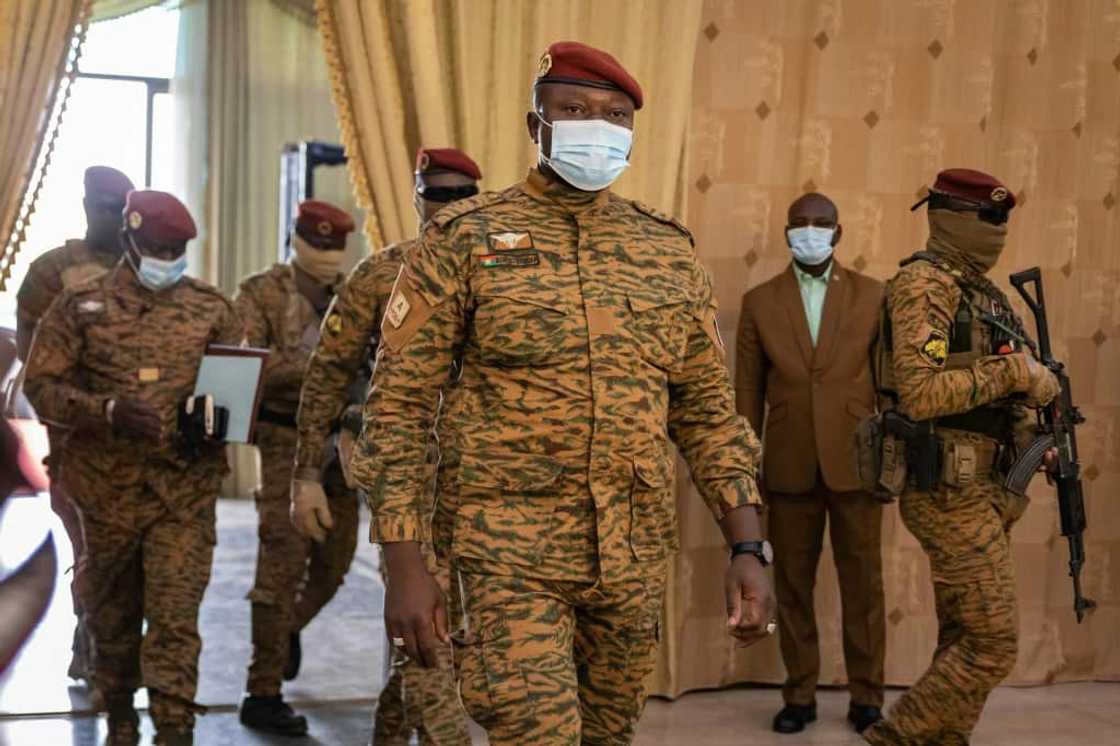
Source: AFP
He added: "We've been suffering from terrorism for seven years, yet even now there are still problems with communication, logistics and command."
Damiba on Wednesday visited Seytenga survivors as well as security forces in the nearby town of Dori.
"It's now more than ever that we have to be mobilised and together against the threat... often from the other side of the border," Damiba said.
"We can no longer do things as we did in the past. We can no longer have traditional checkposts on the roads because our positions are known," he said.
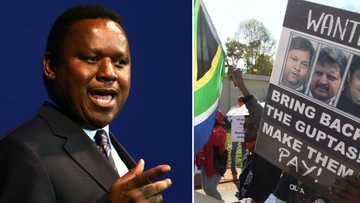
Read also
Anti apartheid activist, ANC member weighs in on state capture brothers arrest, says "bring back the Guptas"
In April, the junta took a new tack by trying to foster dialogue between local jihadists and religious and traditional leaders, but this initiative seems have failed, say commentators.
"The dialogue amounted to an outstretched hand but it was not accepted," said Hien. "It's up to the authorities to draw the conclusions and strengthen the military option."
PAY ATTENTION: check out news exactly for YOU ➡️ find "Recommended for you" block and enjoy!
Source: AFP


